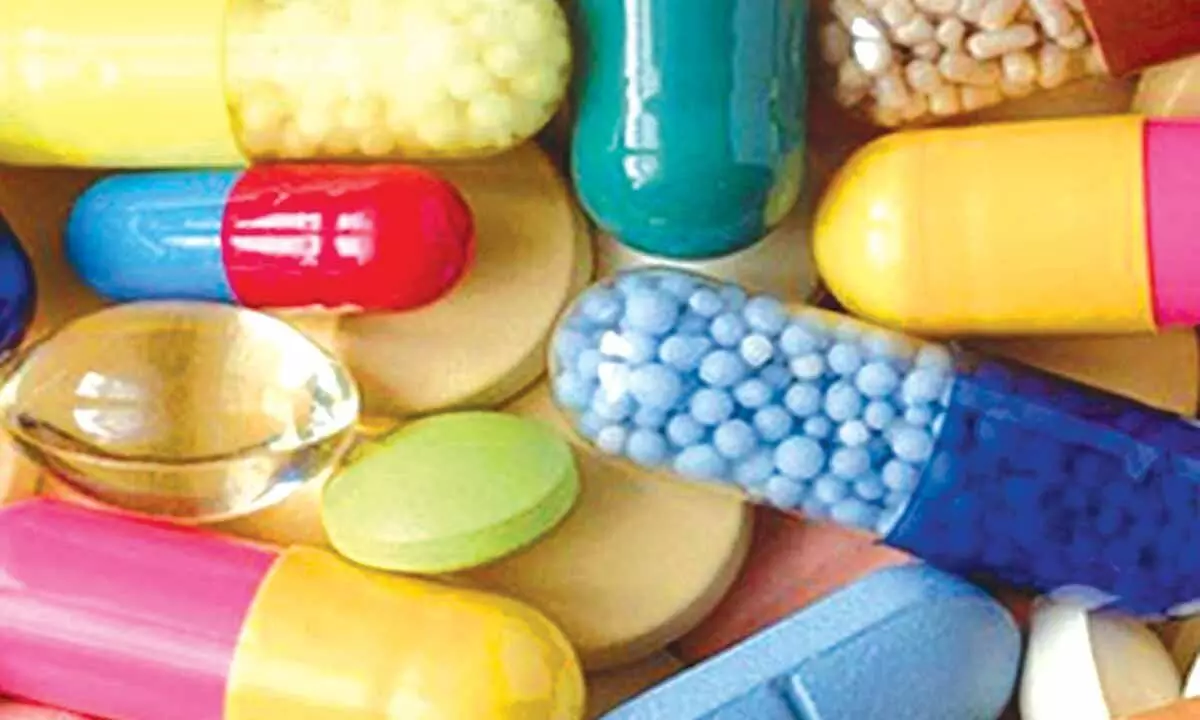Why India must incentivise excipient manufacturers
Excipient industry in India is overwhelmingly dependent on imports, especially from China, if corrective steps are not taken right now, the sector may face a similar fate like that of APIs
image for illustrative purpose

Excipients play a critical role in the manufacture of drug formulations by helping to preserve the efficacy, safety, and stability of APIs (active pharmaceutical ingredients). Excipients such as colouring agents, preservatives and fillers, are inactive substances that serve as the medium for a drug or other active substance
From a 100 per cent importer of medicines, the Indian pharmaceutical industry has come a long way to adorn the epithet of 'the pharmacy of the world', exporting affordable quality medicines to more than 200 countries in the world, including the developed countries like the US and Europe. From a mere Rs10 crore in 1948 to more than Rs2 lakh crore at present, the Indian pharmaceutical industry has undisputedly grown by leaps and bounds. The country at present has over 10,000 pharmaceutical units and around 10 lakh trading establishments in the retail and wholesale segments. And over the years, India has become the only major supplier of quality generic drugs at lower prices to the world. This is certainly a great achievement for a sector which was dominated by the multinational drug companies until 1970's. More importantly, the leapfrog jump of the Indian pharmaceutical industry, and of late that of the medical devices industry, is continuing as the industry since then did not look back and, in fact, it is literally cruising to capture new heights.
But unfortunately, the same cannot be said about the excipients industry in India as at present the country imports 95 per cent of its requirements from regulated markets like the US, Europe and China. Excipients play a critical role in the manufacture of drug formulations by helping to preserve the efficacy, safety, and stability of APIs (active pharmaceutical ingredients). Excipients such as colouring agents, preservatives and fillers, are inactive substances that serve as the medium for a drug or other active substance. The use of high-quality excipients in drug development has increased dramatically. This has resulted in a rise in demand for excipients worldwide, leading to the proliferation of these previously inactive components. But, it is a cause for concern that the excipients industry in India is overwhelmingly dependent on imports, especially from China. If corrective steps are not taken right now by the government, the sector may face a similar fate like that of active pharmaceutical ingredients (APIs) and Indian industry may become completely dependent on imports and may have to play to the tunes of the foreign countries. It may not be out of place to mention here that till late 1980's, India was reckoned as the leading bulk drug producer and Hyderabad was called as the leading bulk drug hub of the country with more than 30 per cent of bulk drugs manufactured from the city. However, due to various factors and regulatory reasons, majority of pharma players shifted from bulk drug manufacturing to formulations and currently India's API production has gone to a lowest level compelling the pharma firms to depend on low cost supplying nations like China which does not augur well for the industry.
Now, the need of the hour is to learn from the past bitter experiences and must take immediate corrective steps. It is high time both the government and industry realize the future beforehand as India's excipients production at present is very low and the industry is highly depending on imports of excipients. This must change. Though the Indian excipient industry is still at a nascent stage, it is necessary to incentivize excipient manufacturing to make sure the industry comes up concurrently with the formulation industry so that the right quality of excipients is available at the right price in the country. The excipients industry in India can flourish in the coming years, thanks to the country's fast-rising pharmaceutical market, increasing demand for novel formulations, accessibility and availability of highly advanced technologies, and the development of new drug delivery systems. India's low-cost manufacturing capabilities and quality assurance are paving the way for foreign companies to establish successful operations in the country. India's excipient market is predicted to increase significantly due to its status as a global centre for drug discovery and technology innovation. As a result, the Indian excipient market will meet the needs of both local units as well as from other nations. So clearly, there is a need to relook at regulations whereby excipients should be separated from APIs. Besides, there is urgent need for clear definition of excipients and its GMP. So, the intervention of the government is of great importance as optimal use of excipients provides pharmaceutical manufacturers with drug development cost savings, enhanced functionality capability and can also assist in drug formulation innovation. Obviously, there is an urgent need to relook at regulations governing excipients industry in the country to reduce its import dependency, especially on China with which India has geo-political issues.
(The author is freelance journalist with varied experience in different fields)

